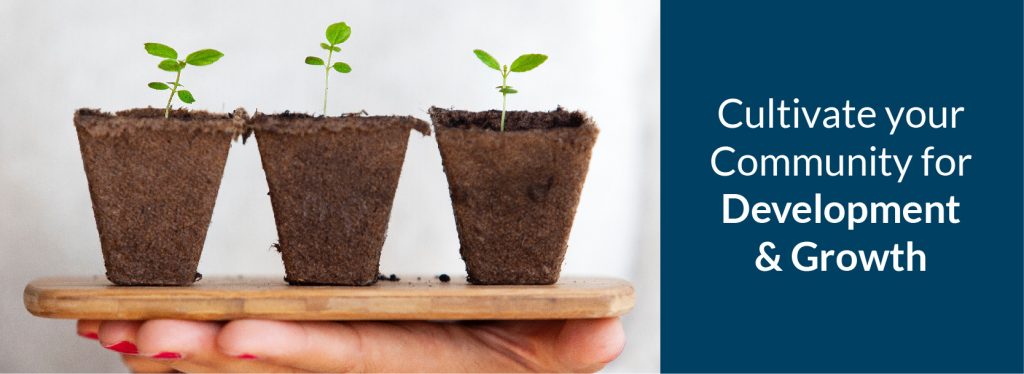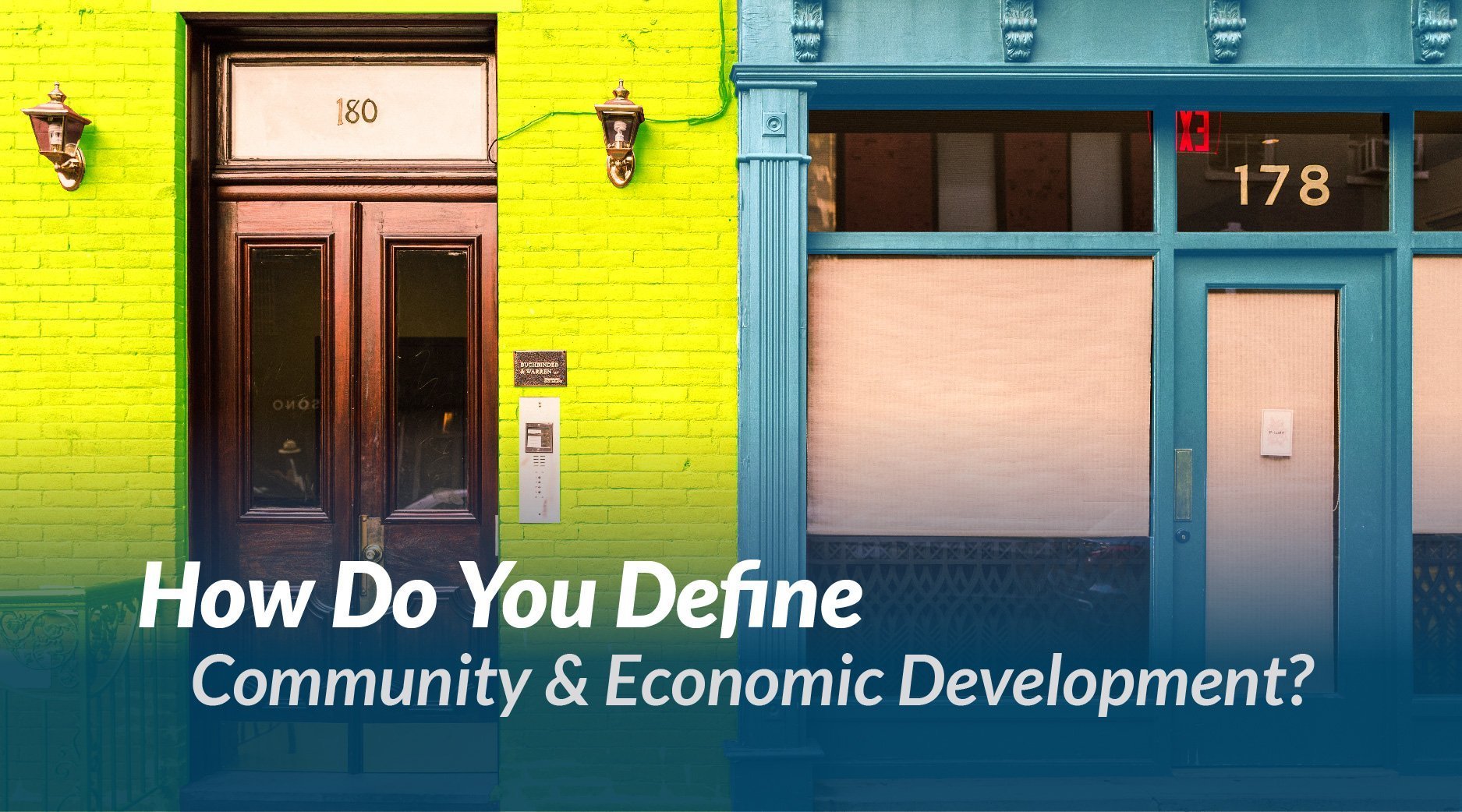by Robert Pittman, Janus Institute
My career in business location and economic development consulting has taken me to communities large and small, close and distant, and I have seen many definitions and philosophies of community and economic development. During one memorable community visit, the mayor said to me “We don’t need economic development, we need jobs!” As well-intended as that good mayor was, he reminded me of the fairy-tale alchemist trying to turn hay into gold – something for nothing, building a house without laying a foundation.
 In the literal sense economic development simply means developing the local economy. That usually implies strengthening and diversification – a deeper and broader economy with more jobs in existing industries but also in new industries. So, contrary to what the mayor said, economic development means jobs, but beyond this, definitions can differ widely. A small rural town might delight in getting its first fast-food restaurant employing a dozen people at a modest wage. That would hardly be news to a large metro area that views economic development in terms of technology firms creating hundreds of six-figure jobs. An environmentally conscious community might not welcome a heavy manufacturing company, but actively recruit a customer-support call center. While these communities view economic development in different ways, their definitions have at least two things in common in addition to job creation: increasing incomes and attracting and growing the types of industries they want.
In the literal sense economic development simply means developing the local economy. That usually implies strengthening and diversification – a deeper and broader economy with more jobs in existing industries but also in new industries. So, contrary to what the mayor said, economic development means jobs, but beyond this, definitions can differ widely. A small rural town might delight in getting its first fast-food restaurant employing a dozen people at a modest wage. That would hardly be news to a large metro area that views economic development in terms of technology firms creating hundreds of six-figure jobs. An environmentally conscious community might not welcome a heavy manufacturing company, but actively recruit a customer-support call center. While these communities view economic development in different ways, their definitions have at least two things in common in addition to job creation: increasing incomes and attracting and growing the types of industries they want.
Economic development success is not a random event. Following the formula discussed in the 5Ps blog – understanding the Principles of community and economic development, Planning, developing the Product, Promoting the community and having the Patience to stay the course – can greatly increase a community’s chances of economic prosperity.

Economic development, then, is both a process and an outcome. However, as the 5Ps formula implies, economic development is based on the foundation of community development. To attract new industries, grow existing ones and encourage start-up companies, communities need to be development ready (the Product). Companies looking to locate a new facility usually screen dozens of potential communities and sites to find the one that best meets their needs. They evaluate communities on labor cost and availability, transportation, utilities, regulatory environment, cost of living, and many other factors. A common misconception is that economic development is just about marketing a community to firms and organizations that might be looking for a site for new or expanded operations. But without a good Product to sell, these firms won’t “buy” the community.
 This brings us to the base of the community pyramid – what supports successful economic development, job creation, income growth, building the type of economy the community wants, and improving the overall standard of living and quality of life – community development. It is also an outcome and a process. The outcome is creating and sustaining a community that is an attractive and competitive location for businesses, and a place where people want to live. Good infrastructure, public services, reasonable taxes, good schools, and many other factors are the outcome of community development. Building a good community where businesses want to locate and people want to live is especially important in today’s hyper-competitive market for educated and skilled workers. As discussed in the Chicken vs. Egg Redux blog, more and more companies are now moving to where the educated and available workers live, not vice versa, and so the outcome of community development (building a great place to live) is becoming increasingly important.
This brings us to the base of the community pyramid – what supports successful economic development, job creation, income growth, building the type of economy the community wants, and improving the overall standard of living and quality of life – community development. It is also an outcome and a process. The outcome is creating and sustaining a community that is an attractive and competitive location for businesses, and a place where people want to live. Good infrastructure, public services, reasonable taxes, good schools, and many other factors are the outcome of community development. Building a good community where businesses want to locate and people want to live is especially important in today’s hyper-competitive market for educated and skilled workers. As discussed in the Chicken vs. Egg Redux blog, more and more companies are now moving to where the educated and available workers live, not vice versa, and so the outcome of community development (building a great place to live) is becoming increasingly important.
 Most of us can cite examples of communities where local government is efficient and effective, where citizens and volunteers work together to improve the community through civic clubs and activities, and where progress is apparent. Most of us can also cite examples of communities where local government is not effective, residents fuss and feud and nothing seems to get done. These contrasting communities illustrate the process of community development – the ability of elected officials, stakeholders and everyday citizens to work together for community improvement and progress. The process of community development also includes working to improve the ability to work together and reach compromise and consensus on key community issues and plans. Research into what facilitates good community development – the outcome and the process – has increased markedly in recent years. Findings from this research and examples are contained in the book An Introduction to Community Development1.
Most of us can cite examples of communities where local government is efficient and effective, where citizens and volunteers work together to improve the community through civic clubs and activities, and where progress is apparent. Most of us can also cite examples of communities where local government is not effective, residents fuss and feud and nothing seems to get done. These contrasting communities illustrate the process of community development – the ability of elected officials, stakeholders and everyday citizens to work together for community improvement and progress. The process of community development also includes working to improve the ability to work together and reach compromise and consensus on key community issues and plans. Research into what facilitates good community development – the outcome and the process – has increased markedly in recent years. Findings from this research and examples are contained in the book An Introduction to Community Development1.

To summarize, how do communities help create the kinds of jobs they want? With apologies to our mayor previously cited, they do it by starting with the process of community development which leads to the outcome of community development which supports economic development which leads to more and better jobs, higher incomes, and a higher standard of living and quality of life. This is the community and economic development “chain.” The mayor’s rallying cry should really have been “we need more community development!”

- How would you define economic development in your community?
- What parts (links) of the community and economic development “chain” does your community do well?
- What parts of the chain does your community need to work on? How would you go about improving your community’s performance in community and economic development?
We look forward to your input. Have some thoughts to the questions and content above? Feel free to post them in the comments below.
Sources:
1 An Introduction to Community Development, Second Edition, edited by Rhonda Phillips and Robert Pittman, published by Routledge, 2015.
![2021 Prosperous Places Logo [TM]](https://www.prosperousplaces.org/wp-content/uploads/2021/02/20210205_JI_PPTM-Logo.png)



